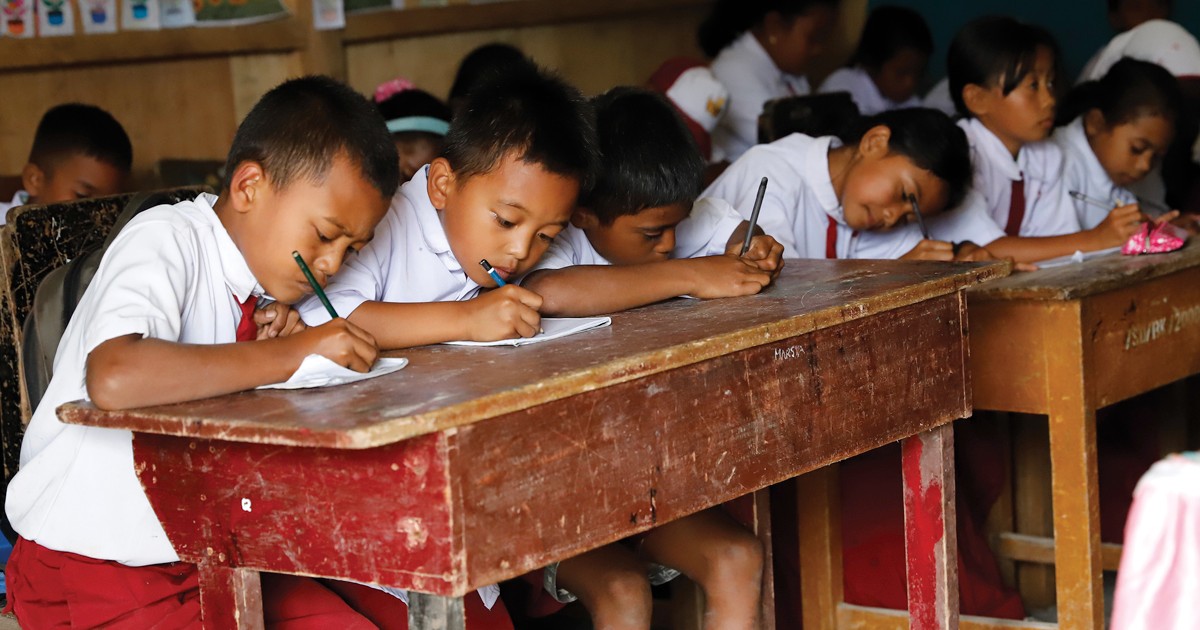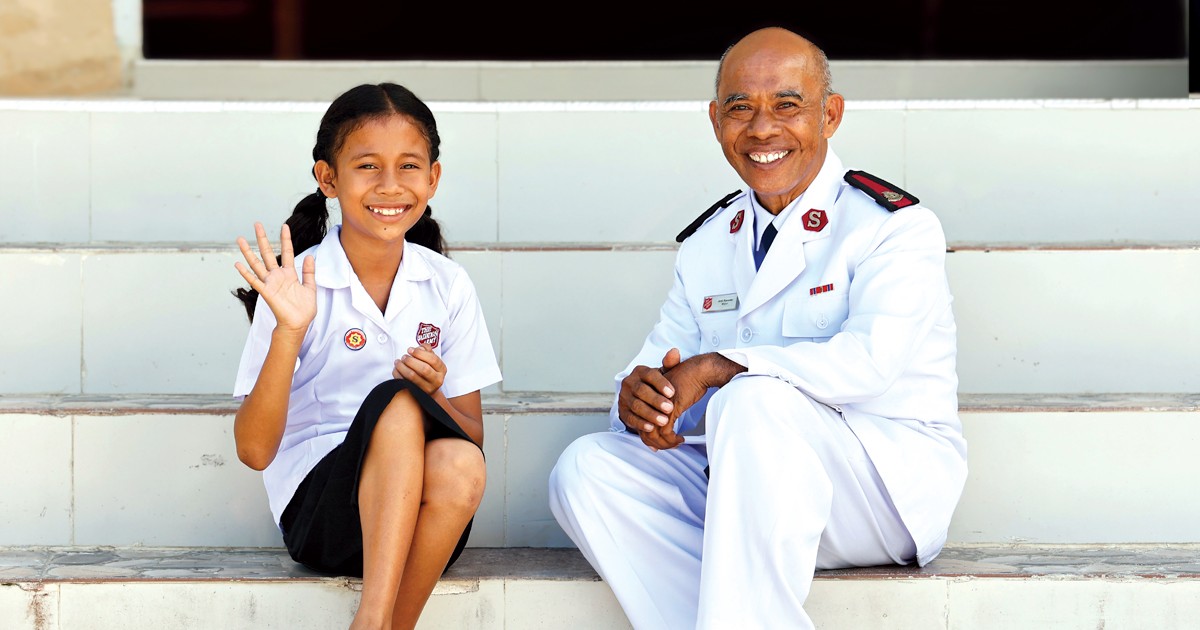In the Indonesia Territory, The Salvation Army operates more than 100 schools, along with two medical colleges and two academies for nurses’ training. While visiting Indonesia in support of our territory’s annual Partners in Mission campaign, I saw first-hand how these schools and education programs are making a significant impact on youth. Education is empowering individuals across the country, from children in rural villages to young adults training to be nurses. These programs are giving people hope for a better future by breaking the cycle of poverty and inequality, building a brighter tomorrow for communities devastated by poverty, illness and natural disasters.
Dongi Dongi School, located in a rural town two hours south of Palu, a city on Sulawesi Island’s northern coast, shows the results of persistence and dedication. The school functions through difficult circumstances, such as not having access to running water or electricity. The building itself is a single structure without any walls to separate classrooms.
Despite these challenges, the school remains devoted to providing young students with a high-quality education. Children from the nearby community come to school every day with an eagerness to learn. Spirits are high during class, with chants and cheers echoing throughout the building. The Dongi Dongi School serves as a light of hope in this community, demonstrating that education can make a positive impact on lives, even in the face of adversity.
Upon our arrival at the Towua School in Palu, we were greeted by the students, who had arranged a traditional Indonesian dance performance and song using percussion instruments. It was a heartwarming display of pride and hospitality that set the tone for our entire tour. The Towua School educates students from Grades 1 to 12. It was great to see the younger students interacting with the older students, developing a sense of family throughout the community.
“I like coming to school because I get to see my friends. Here, we don’t just learn from the book, but we learn heart to heart,” said Nanda, a 14-year-old student.
Following the performances, we were given a tour of the school, with each member of the team partnered with two students who were practising their English. As we began our tour, I noticed a certain energy through the school. It was buzzing with activity, filled with students excited to be learning. The teachers and staff radiated passion for education and teaching.
“I want to become a flight attendant and travel the world. I love aviation,” said Fiato, a 17-year-old student. Our time at Towua School illustrated the potential of education as well as the unwavering spirit of both the students and staff.
We also had the opportunity to visit The Salvation Army’s academy for nurses’ training in Palu, where a similar spirit of devotion was seen. The academy embodies The Salvation Army’s values of hope and transformation. Students not only learn the basic medical skills needed for nursing, but also the ideals of compassion, empathy and service, inspired by Jesus’ teachings. The academy’s approach to nursing education extends beyond the technical components of the profession.
The capping ceremony, which marked the nurses’ transition to clinical work in hospital, was a high point of our trip. It was inspiring to witness the sense of success as the students received their nursing caps, symbolizing their readiness to begin their careers. As we spoke with the students and teachers, it became clear that this college was more than just a school, but a community of young adults dedicated to making a difference in the lives of others.
As I reflect on the stories of determination shared by these students and schools, it’s evident that education has the potential to alter people’s lives and transform communities. The Salvation Army’s focus on education embodies the vision of empowerment, where individuals are given the means to build their own future. As we recognize these schools’ accomplishments, and the influence they have on their communities, the importance of education is reinforced.
Education serves not only as a path to knowledge, but as a driver of positive transformation and resilience. As we continue our work around the world, we must remember the power of education to transform lives. By investing in education, we invest in the future of Indonesia.
JACQUELINE TINGLE was the resource and media co-ordinator in the international development department.
This story is from:










Leave a Comment